On January 21st, 2009, the CFRG presented the following documents to the North Carolina Department of Marine Fisheries Commission at their meeting in Carolina Beach. Each commissioner was presented with an original draft of both documents. The CFRG felt that the combined issues of the vulnerability of the Speckled Trout in the coastal and inland creeks, along with the increased pressure from strike-netting demanded immediate action by the commission.
Coastal Fisheries Reform Group January 21, 2009
Topics of Concern
Enforcement – The consensus opinion of all fishery managers is that sound regulations can only be effective and lead to targeted conservation results if these regulations are enforced in a certain, fair, and vigorous manner. To accomplish effective law enforcement the following factors have to be employed:
1) Authority – Marine Patrol Officers need additional law enforcement authority, which requires conveyance by NCGA based upon the recommendation and support of Governor Perdue.
a) Joint enforcement authority with National Marine Fisheries Service will help protect fisheries resources in NC waters and will make NC eligible for federal monies to support related enforcement work.
b) Full enforcement authority over any state crime committed in the presence of a Marine Patrol Officer while on duty and involved in enforcing laws under basic subject matter jurisdiction will protect these officers from frivolous law suits and make them more efficient in efforts to protect the resource and the public. Wildlife Enforcement Officers already have this authority and it has proven successful.
2) Interstate Compact – NC needs to become eligible to join interstate compacts to make punishment of non-residents who violate conservation laws apply in all states that are members of the compact. This provision already exists for wildlife violations and needs to be expanded to marine fishery violations.
3) Penalties – NC needs to increase penalties for conviction of crimes against the marine fisheries resource to include stiff fines, loss of license for certain serious offenses that damage the resource (both sport and commercial licenses), and other appropriate disincentives to violations.
4) Number of Officers – The number of Marine Patrol Officers needs to be increased from the current level of 59 positions to at least 70 (which would be 3 per coastal county) to give stronger enforcement presence along the NC coast. Plus, these officers need to be well trained, well equipped, and well supported.
5) Budget – Governor Perdue and the Secretary of DENR need to present a budget for DMF that reflects these improvements in law enforcement. The Perdue administration should strongly support this budget for FY 2010-11 in the next session of the NCGA.
Saltwater Fishing License Revenues – About one half million sport fishermen are buying the new salt water fishing license. The Marine Resources Fund has generated about $8 million in its first two years. The following considerations are important to the efficient and appropriate use of this money:
1) Allocation of Funds – Under current law the funds from sale of the salt water fishing license can only be spent with approval of both the WRC and the MFC based upon the recommendation of the Director of DMF. This is a very inefficient way to allocate important funds for restoration and management of marine resources. The process needs to be streamlined so that MFC makes these allocation decisions subject to some accountability and reporting requirements which include justification of the allocation and some measure of success to public via the Governor and General Assembly.
2) Eligibility of Activities – License funds should only be spent to support the highest level priorities with the greatest potential for improving marine fisheries resources for the public. They should not be spent to support peripheral projects with borderline prospects for improving management and efficient conservation of marine fisheries resources. Generally grants should be restricted to recognized public agencies, institutions, and organizations with successful and proven track records of research and resource management. It should be a rare exception that a grant is approved for an individual or a nonpublic entity. Law enforcement should be an approved use for salt water fishing license funds. Without enforcement, no license system or conservation measure will be successful.
Science Based Rules – The recognized basis for successful protection and management of fisheries resources is that rules to govern taking of fisheries must originate from the best available, sound, scientifically based techniques and processes advanced by fisheries trained managers and scientists. The following factors apply:
1) Seasons/Limits (Recreational & Commercial) – Rules to allow taking fisheries in certain places, at certain times, in prescribed numbers, and with sustainable gear that are within the capacity of the fishery to support harvest and without significant damage to the habitat of the fishery are essential.
2) Habitat – No gear should be allowed in rules for taking fisheries that destroys fishery habitat or results in a by-catch of non-target species that threatens sustainability of any species.
3) Gear Management – Nets and trawls should not be allowed by rules at any time or place that is not proven to be compatible with sustainable fisheries management by competent studies conducted by DMF. Sensitive, essential areas and times of the life cycle must be avoided for commercial and sport fishing when evidence shows that such taking may endanger the sustainability of the fishery. Reefs (both artificial and natural), nursery areas, feeding and resting sanctuaries, and other areas of unique importance to fisheries should be identified as sensitive areas and appropriate protective measures developed and implemented. Every fish species should be considered for size and creel limits based upon their life cycle requirements; and, appropriate creel and size limits should be established when findings indicate restrictions will improve sustainability of the fishery. Generally, trawling should be restricted to areas and during times when this activity will not harm the fishery or its habitat.
4) Game Fish Status – Certain species of fish are so vulnerable to commercial gear or economic exploitation and other incentives for taking and have such a high esthetical and economic value as sport fisheries that they should be declared “game” fish and sale prohibited. A system to evaluate the advisability of declaring a species to be a “game” fish that involves a complete analysis of the pluses and minuses of such action should be developed and applied to candidate species, especially the red drum, our State Fish.
New Legislation – Select legislation is needed in the 2009-10 Session of the NCGA to correct some prevalent problems in the administration of the marine fisheries program. Among changes that need to be addressed are:
1) Fisherman Harassment - A new law, analogous to the current law prohibiting harassment of hunters contained in G.S. 113- 295, to prohibit harassment of any commercial or sport fisherman lawfully engaged in any legal act of taking fisheries resources in any public waters of the State.
skip to main |
skip to sidebar

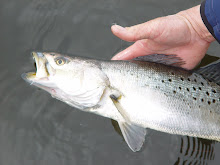



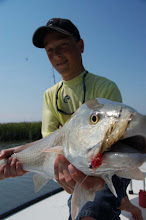
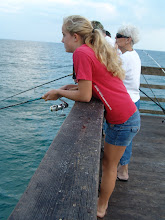

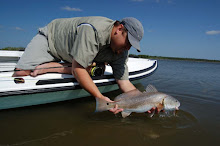.jpg)


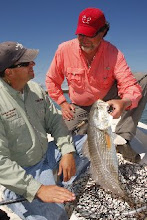
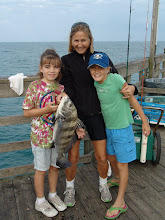



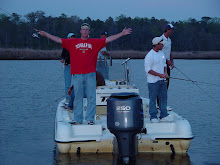
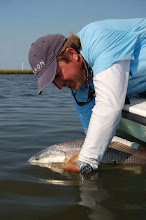
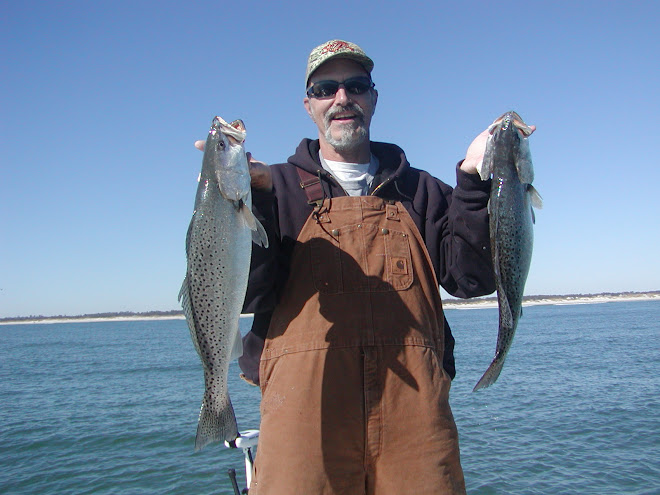

Number of visitors since 1/15/2009
Go to the Game Fish Website here....


FEEDJIT Live Traffic Feed
Contact Us
To be added to our email list, please send us your full name, the town/city where you live, and a contact phone # to CFRG@northstate.net


Dolphin killed by NC Gill Net

Followers

About Us

- CFRG Admin
- The CFRG believes in: *Science Based Fisheries Management. *Banning of Destructive Fishing Gear. *Game Fish Status for Speckled Trout, Red Drum, and Striped Bass.
.jpg)









